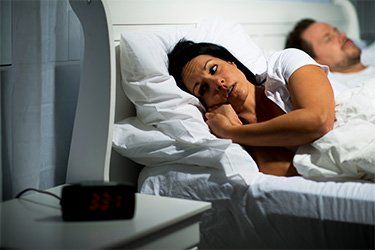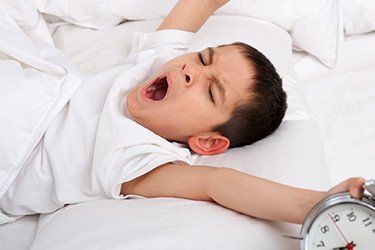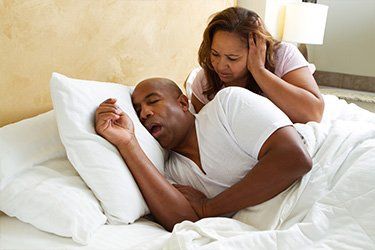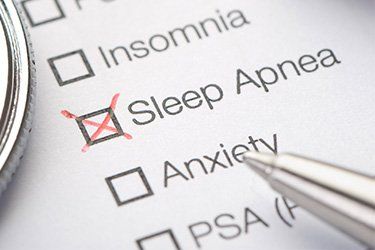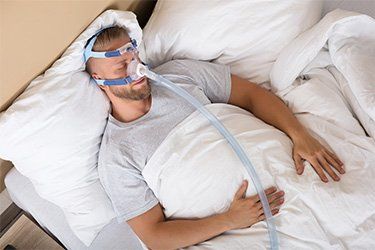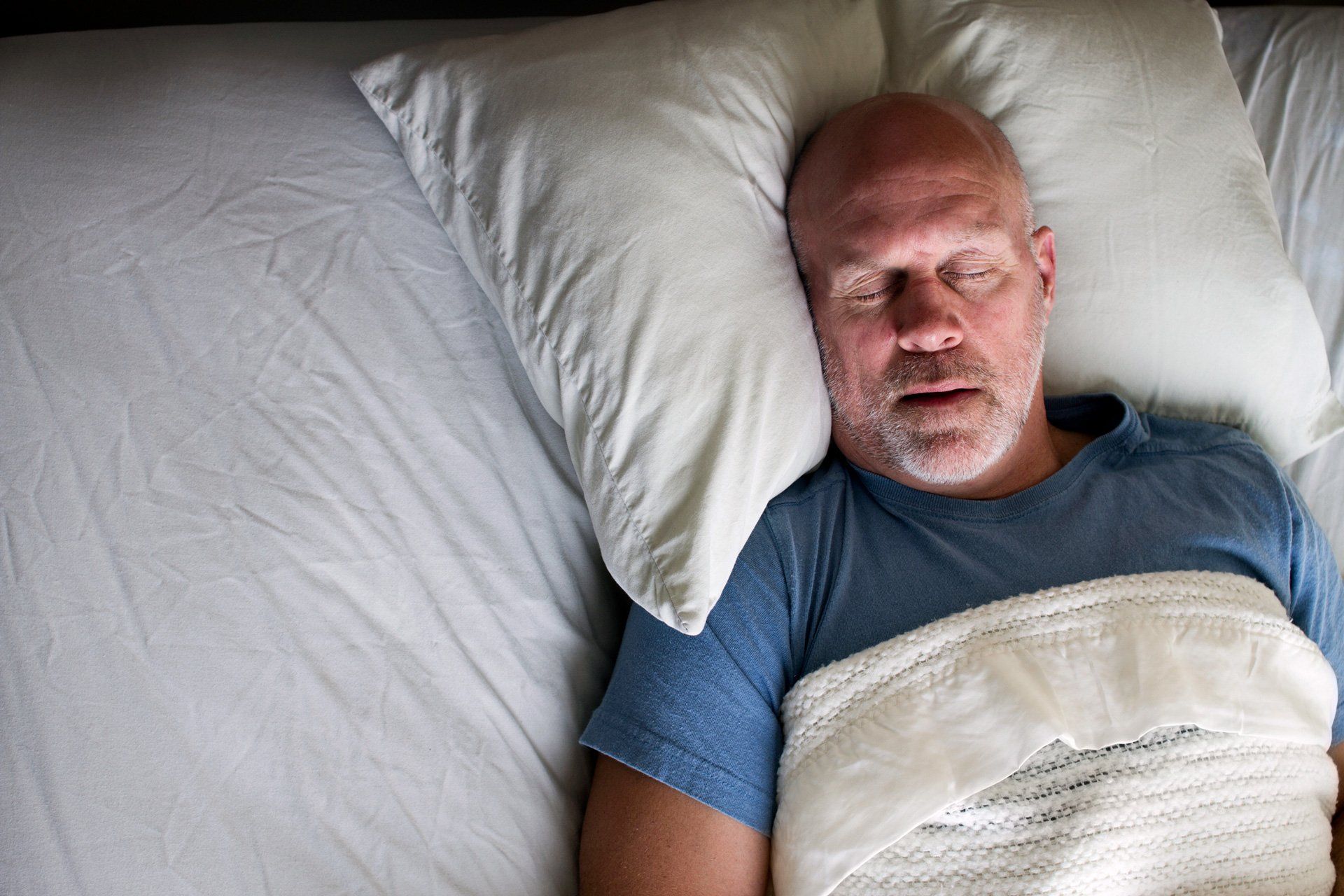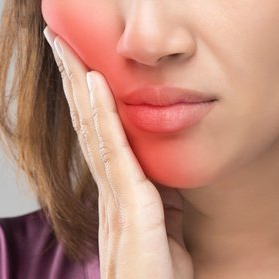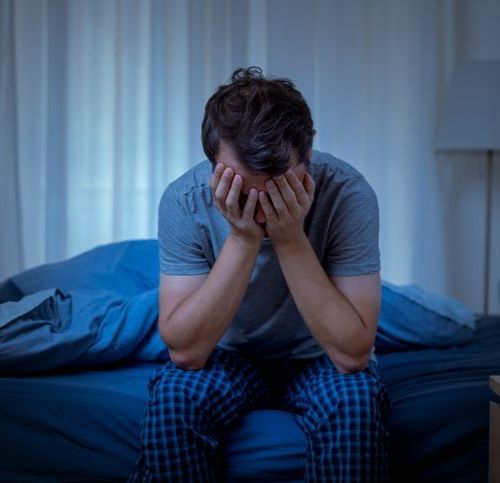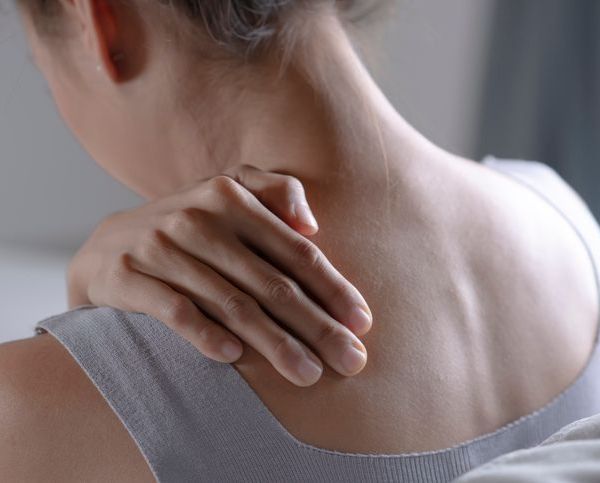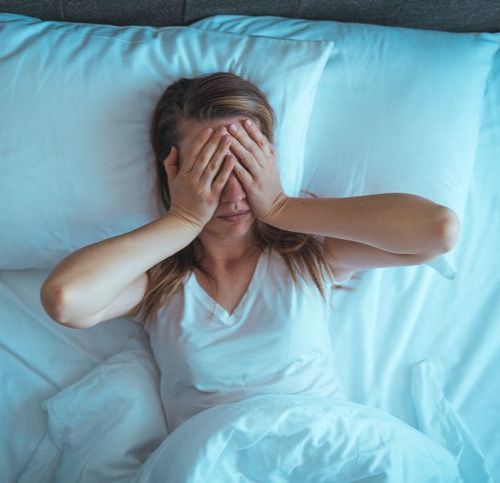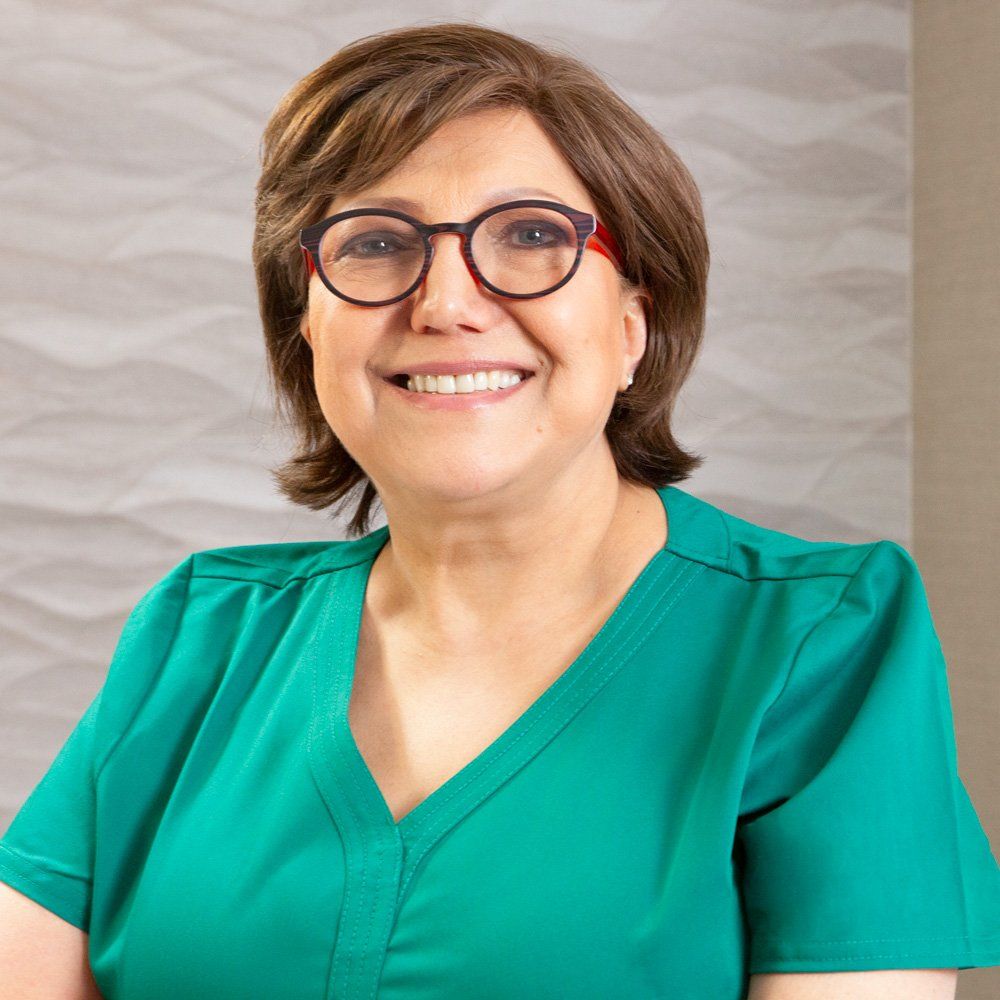Fibromyalgia and Sleep Apnea
When a person struggles for years with the pain and fatigue of fibromyalgia, it can be very hard to envision full recovery. Recent research on the association between fibromyalgia and sleep apnea provides a possible path to improvement.
Fibromyalgia patients often suffer from a list of symptoms that sound exactly like the symptoms of apnea patients:
- Poor sleep
- Dry mouth
- Headaches
- Fatigue
- Jaw discomfort
- Difficulties with mood and memory
- Non-restorative sleep
In fact, current research reveals that among women with obstructive sleep apnea, the incidence of fibromyalgia is ten-fold higher than it is in the normal population. This indicates a profound association between these two conditions.
What Is Fibromyalgia Syndrome?
Fibromyalgia is a complex medical disorder that causes widespread pain throughout your body. This pain can lead to chronic fatigue, sleep disturbances, depression or anxiety, and cognitive difficulties.
According to the CDC, fibromyalgia syndrome affects an estimated 4 million adults in the United States. Fibromyalgia symptoms typically come and go, with “flare up” periods where the symptoms are more severe followed by periods of little to no symptoms. People with fibromyalgia can be more sensitive to pain than those without this condition, meaning that simple bumps and accidents can’t be brushed off so easily.
How Can We Help You?
Are Fibromyalgia and Sleep Disorders Related?
Your body needs deep and restful sleep in order to function properly and heal from injuries and illnesses. If you aren’t getting the quality of restful sleep you need, you will experience fatigue, mood swings, cognitive troubles, and other unwanted symptoms. Fibromyalgia and breathing problems brought about by sleep disorders both interrupt your body’s ability to get the deep sleep it needs, which makes the symptoms of these two conditions worse. And
research suggests that there could be a correlation between fibromyalgia and sleep apnea specifically. If you think you might have a sleep disorder like sleep apnea, call us at
(301) 770-1070 to schedule your consultation with Dr. Maryam Seifi today.
Fibromyalgia and Sleep Apnea
Like fibromyalgia, sleep apnea interrupts your body’s ability to get a full night’s rest.
Sleep apnea is a type of sleep disorder that causes you to stop breathing intermittently throughout the night. This can either be due to an obstruction of your airway or a miscommunication between your nervous system and your respiratory system. If you have sleep apnea, you may wake up choking or gasping for air throughout the night. This stops your body from reaching the restorative stages of sleep, which can in turn make your fibromyalgia symptoms worse the next day.
Cause of Central Sleep Apnea (CSA)
Central sleep apnea (CSA) is caused by one of two problems: either your brain is not sending the signals that tell your lungs to breathe when you’re asleep, or your lungs are ignoring those signals. Both causes indicate an issue with your central nervous system, which is responsible for sending and receiving those signals. If you think you might have central sleep apnea, call us at
(301) 770-1070 to schedule your consultation with Dr. Maryam Seifi today.
Cause of Obstructive Sleep Apnea (OSA)
Obstructive sleep apnea (OSA) is caused by an obstruction of your airway when you fall into a deep sleep. This obstruction can be the muscles of your throat relaxing too much, or your tongue pressing against your airway (especially if you have a small airway or small jaw). If you think you might have obstructive sleep apnea, call us at
(301) 770-1070 to schedule your consultation with Dr. Maryam Seifi today.
Can Patients with Fibromyalgia Use Oral Appliances?
The most common treatment for sleep apnea is a continuous positive airway pressure (CPAP) machine. To use a CPAP machine, you put on a face mask every night before you go to bed. The machine will exert continuous pressure through your airway to prevent it from closing, which will help you get a full night’s sleep. However, many patients do not like to use a CPAP machine because it can be noisy and uncomfortable. If you have fibromyalgia, you may want to consider a more discreet sleep apnea treatment that will enable you to get the rest your body needs.
Oral appliances are a great solution to this problem. Instead of wearing a face mask attached to a machine, you’ll wear your oral appliance much like a mouth guard or a retainer. It sits comfortably inside your mouth and applies a small amount of pressure to prevent obstructions to your airway. Dr. Maryam Seifi at Breath of Life Dental highly recommends
the Vivos system of oral appliances because it is the only FDA-approved treatment that can handle the underlying cause of your sleep apnea. Patients who have switched from CPAP to our oral appliances and sleep apnea mouthguards
have reported much higher levels of comfort and an easier time falling asleep.
Fibromyalgia and Sleep Apnea Symptoms Overlap
If you have not been formally diagnosed with either fibromyalgia or sleep apnea, you may not know which condition is causing your symptoms. This is because both fibromyalgia and sleep apnea stop you from getting a full night’s sleep. Often, the overlapping symptoms of these conditions have the same cause: sleep deprivation. If you have not gotten a formal diagnosis, it’s important to see your doctor so that you can take the necessary steps to protect your health.
What to Do if You Have Symptoms of Fibromyalgia
If you suspect that you or someone you know has fibromyalgia, the first step is to talk to a doctor. Many of the symptoms associated with this condition, such as widespread body pain and fatigue, can easily be mistaken for other medical issues, so it's important to get an accurate diagnosis. By discussing your medical history, lifestyle, and any health issues with a healthcare professional, you can determine if your symptoms are caused by fibromyalgia or not. While managing fibromyalgia can feel overwhelming at times, developing a treatment plan in collaboration with your doctor is essential for finding relief.
What to Do if You Have Symptoms of Sleep Apnea
If you think you might have sleep apnea, make an appointment with your doctor to discuss it. After sharing your symptoms and concerns, they may recommend you attend a sleep study to check for obstructive sleep apnea. Generally, this means sleeping overnight in a sleep clinic while machines monitor and measure your breathing patterns, allowing medical professionals to better diagnose the disorder.
Alternatively, you can schedule a consultation with Dr. Maryam Seifi at Breath of Life Dental. While Dr. Seifi cannot give you an official diagnosis of sleep apnea, she has been working with patients who have this condition for many years now. Dr. Seifi will be able to recommend whether or not you need to see your doctor for an official sleep apnea diagnosis. And if you do have sleep apnea, Dr. Seifi and her team at Breath of Life Dental can help you get the treatment you need for a good night’s rest. If you think you might have a sleep disorder like sleep apnea, call us at
(301) 770-1070 to schedule your consultation with Dr. Maryam Seifi today.
Will Sleep Apnea Treatment Improve Fibromyalgia Symptoms?
Getting the treatment you need to handle your sleep apnea has far-reaching effects that can be especially beneficial if you are struggling with the symptoms associated with fibromyalgia. The improved sleep quality that follows from sleep apnea treatment can help to relieve your existing fibromyalgia symptoms. This is because restless nights caused by sleep apnea can exaggerate your existing fibromyalgia symptoms of pain, exhaustion, and lack of concentration. Not only that, but sleep apnea alone can even lead to serious medical conditions like heart disease, liver problems, and high blood pressure. This happens for two main reasons:
- When you are constantly waking up in the middle of the night, your body can't get into the REM stage of sleep that is vital to your overall health and healing. That means as the days go by, you'll get increasingly tired, achy, and susceptible to a fibromyalgia flare up.
2. Sleep apnea doesn't just mean you're waking up at night — it means you're suffocating until your body wakes up. That constant oxygen deprivation when you're not breathing is harmful to your body and can lead to a myriad of health issues that will exacerbate your fibromyalgia pain.
If you have both sleep apnea and fibromyalgia, getting effective treatment for your sleep apnea can help you get the deep and restful sleep that your body needs so you can manage your condition.
Effects of Poor-Quality Sleep on Overall Health
Many people underestimate the importance of consistently getting good-quality sleep. Without sufficient rest, your body’s natural repair and renewal processes are hindered. This doesn't just mean you'll feel tired the next day. It means you will be more likely to catch illnesses due to a weakened immune system, experience mental health issues such as anxiety or depression, and struggle with memory loss and physical exhaustion.
If your body is deprived of sleep over a long period of time, like with sleep apnea, the lack of sleep can contribute to weight gain and put you at greater risk for chronic illnesses like diabetes or cardiovascular disease. A lack of quality sleep can have serious health repercussions. That's why it is vital that you practice good sleep hygiene, so you do not have to suffer from the negative health effects caused by inconsistent sleeping patterns or a lack of deep, high-quality sleep. If you think you might have a sleep disorder like sleep apnea, call us at (301) 770-1070 to schedule your consultation with Dr. Maryam Seifi today.
What Increases Your Risk of Developing Sleep Apnea?
Unlike fibromyalgia, there are certain definitive lifestyle factors that have proven to raise your risk of developing sleep apnea. It's important to understand these lifestyle factors and take action to improve your overall health if you want to decrease your risk of developing sleep apnea. This is especially true if you are already diagnosed with fibromyalgia, as developing sleep apnea on top of that can seriously reduce your quality of life and your overall health. If you think you might have a sleep disorder like sleep apnea, call us at (301) 770-1070 to schedule your consultation with Dr. Maryam Seifi today.
The main lifestyle factors that can increase the possibility of you developing sleep apnea are:
- Obesity — When you are obese, the excess fat around your neck can put too much pressure on your airway and lead to obstructive sleep apnea. This is especially true if you lie on your back at night to go to sleep. Maintaining a healthy weight is a smart way to prevent sleep apnea and support your overall health.
- Sex — If you are a man, you are two to three times more likely to develop sleep apnea in your lifetime than a woman is. Because of this, men should take extra care to maintain their overall health with proper nutrition, exercise, and rest to prevent the development of sleep apnea.
- Age — Older adults are significantly more likely to develop sleep apnea. This tends to happen because your muscles get weaker as you age, including the muscles in your throat. Routine exercise can help keep your body in good shape overall, keep your muscles strong, and help prevent you from developing sleep apnea.
- Drug and alcohol use — Drugs that relax your muscles, such as alcohol, sedatives, opiates, and tranquilizers, can lead to obstructive sleep apnea. This is especially true if you are combining drugs with alcohol or taking substances before you go to bed at night. Reducing or completely quitting the use of these substances can help you lower your risk of developing sleep apnea.
- Smoking — If you smoke, you are three times more likely to develop obstructive sleep apnea than a nonsmoker is. This is because the smoke can cause inflammation in your airway and lungs, which leads to swelling and difficulty breathing. The best preventative health measure you can take is to reduce or completely quit smoking. Not only will this help you prevent sleep apnea, but it will be great for your overall health and wellbeing.
- Medical conditions — Certain medical conditions, such as high blood pressure, PCOS, asthma, and congestive heart failure, can raise your probability of developing obstructive sleep apnea. If you have any of these conditions, you should schedule a consultation with Dr. Seifi to figure out what preventative steps you can take to reduce your probability of developing obstructive sleep apnea.
Tips for Getting a Good Night’s Sleep
Whether or not you have fibromyalgia, we all need to be able to get a full night of restorative sleep to keep our bodies healthy and our minds sharp. If you’re struggling to fall asleep or stay asleep at night, here are some tips that can help you develop good sleep hygiene so you can get the rest you need.
Find Out More About Fibromyalgia and Sleep Apnea
If you have been diagnosed with fibromyalgia, learn if you also suffer from obstructive sleep apnea. If so, the Vivos Biomimetic Oral Applianceoffers a new, comfortable and non-invasive solution.
Contact us to attend our free educational seminar or ask about a one-on-one consultation with Dr. Maryam Seifi. Call (301) 770-1070 , email info@breathoflifeteam.com or submit a request online.

